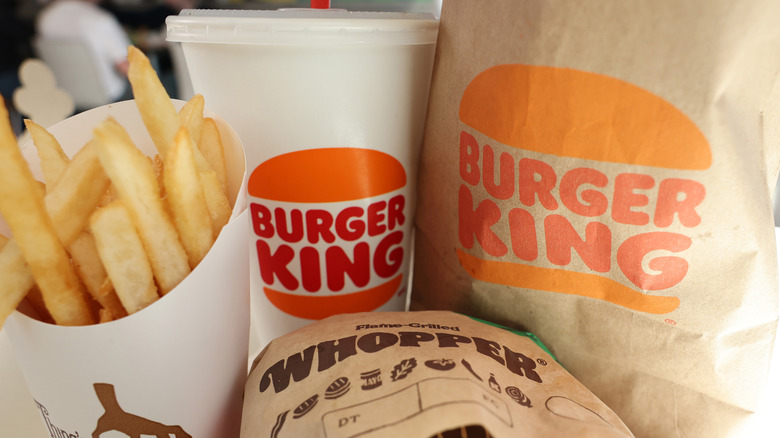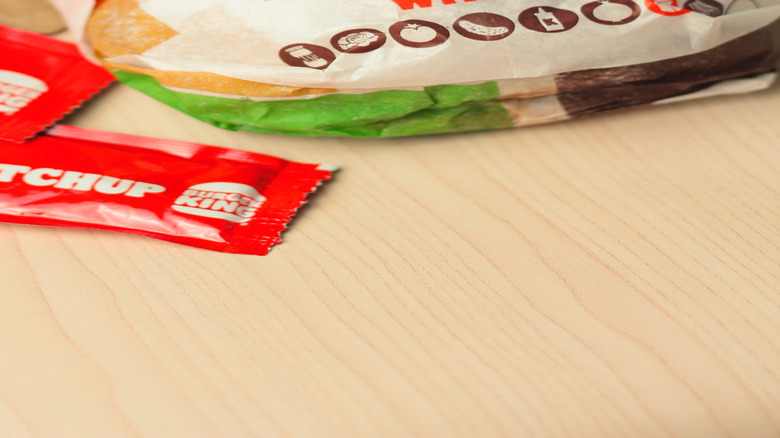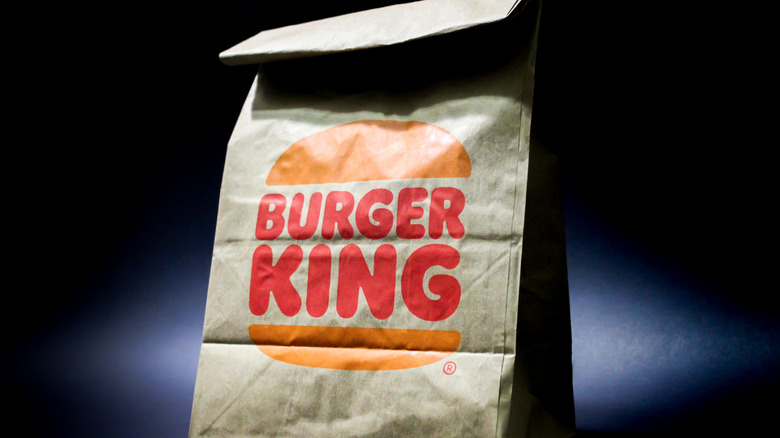The Big Whopper Mistake That Once Cost Burger King Big Time
Burger King marketing loves to tell customers "you rule!" in advertisements. However, once upon a time, the "Home of the Whopper" became the home of one whopper of a Whopper discounting error in customers' favor.
During the summer of 2019, unintentional double-discounted pricing, instead of single-deal pricing, was accidentally applied to certain Whopper meal deals across over 1,000 Burger King restaurants. This mistake flame-broiled profits, cost Burger King and its largest national franchisee millions, and gave the company's hungry subjects a truly royal deal.
Given the amount of money Americans spend on fast food every month and the near-constant ratchet of food prices due to inflation, shrinkflation, operating costs, or good ol' corporate greed, a surprise super-savings on a burger value meal can be seen as a triumph for the average burger-eater. However, millions of dollars in revenue loss and a drop in stock prices might not taste so great at the top of the corporate ladder. Of course, some of the biggest burger corporations in the kingdom (and their franchisees) might have more of a stomach for major mistakes than you might expect.
The mistake and how it was caught
Syracuse, NY-based Carrols was the nation's largest Burger King franchisee in 2019. At the time, Carrols ran just over 1,000 Burger King restaurants, and made its Whopper error across the lot of them. In June 2019, Carrols-run stores ran a promotion initially intended to profit off of upselling fries and drinks, when paired with discounted Whoppers. Through the promotion, customers could get two Whopper Juniors for $4, two regular Whoppers for $5, or two Double Whoppers for $6. Customers were supposed to just save on their doubled-up Whoppers, but pay full-price for fries and drinks. However, when cashiers rang up the deal with added-on fries and drinks, the system recognized the additions as value meals, and charged much lower prices than the promotion was intended to encompass.
No workers seem to have reported the lower pricing as an issue, possibly because the deal seemed just like a system-approved, limited-time offer made official by top brass. The error was only discovered in late August, when said top brass reviewed surprisingly lackluster quarterly earnings reports. Carrols-run stores usually do better than other Burger King restaurants and franchisees, so the low numbers triggered a closer look at the big mistake. Dan Accordino, then-CEO of Carrols, announced in a Q3 earnings call: "We screwed up. And it cost us a fair amount of money."
Short- and long-term consequences
The months-long double-discount mistake lost Burger King about $8.3 million in sales, reported Restaurant Business Magazine at the time. Dan Accordino owned up to the mistake and called it a "one-time error" in the Q3 call, though stocks still plummeted 8% after the call.
However, Carrols-run Burger King restaurants saw revenues regain health once the erroneous deal prices were corrected. A new CFO was installed after the ordeal, and Accordino retired in seemingly good graces in 2022. Carrols-run Burger King restaurants continued to thrive through the COVID-19 pandemic, and even walked back a scandalous proposal to cut workers' wages by 10% in 2020.
In late 2024, Carrols was even acquired by Burger King's parent company, Restaurant Brands International (RBI) for $1 billion. RBI has plans to renovate the just-over 1,000 formerly Carrols-run Burger King restaurants as part of its "Reclaim the Flame" initiative. Burger King corporate can afford pricey remodels at a quicker pace than even its largest franchise operator. The plan is to then sell off freshly remodeled (and therefore, even more profitable) restaurants to smaller franchise manager-operators than the once-gargantuan Carrols. This move could simply be to empower a new generation of operator-owners and their customers, as the official statements allude to. Of course, it could also be part of a recipe for success in avoiding grand-scale software discount errors.


